Endocrine Activity Index
Patients with low levels of endocrine activity, determined by the Endocrine Activity Index (EAI), demonstrated improved survival when treated with dose-intense paclitaxel-based chemotherapy.

Understand Which Patients Will Benefit Most from Dose-Intense Chemotherapy
There are many factors considered when choosing a chemotherapy regimen for your patients. Utilizing EAI as an important step in your process can help identify patients that have a higher likelihood of benefit. Patients with an EAI score <0.75 had higher disease-free survival (DFS) at 10 years when using dd AC/T compared to other standard dosing AC-T regimens, regardless of menopausal status.
Clinical Evidence
In the 12-year analysis of the CALGB 9741 trial, patients with node-positive HR+/HER2- breast cancer that had an EAI <0.75 had better outcomes with a dose dense paclitaxel regimen (dd AC/T). Patients with EAI <0.75 had higher disease-free survival (DFS) at 10 years when using dd AC/T compared to other AC-T regimens.1 Results were not affected by menopausal status.
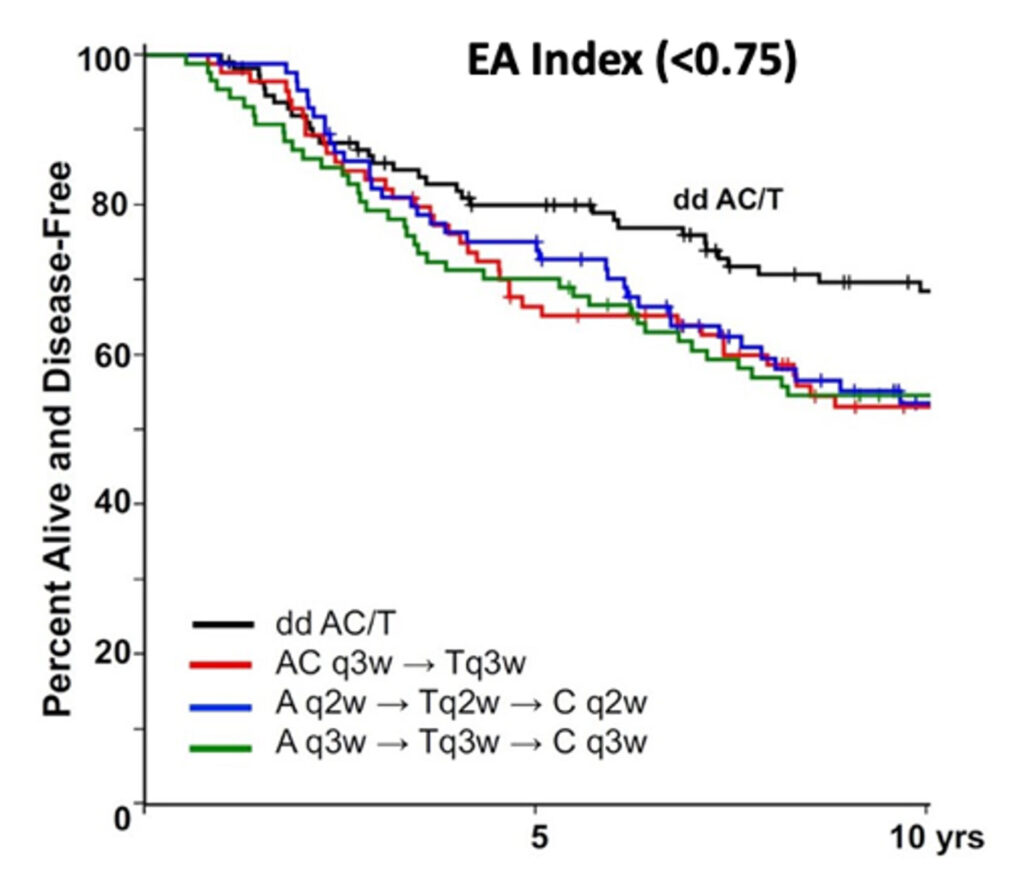
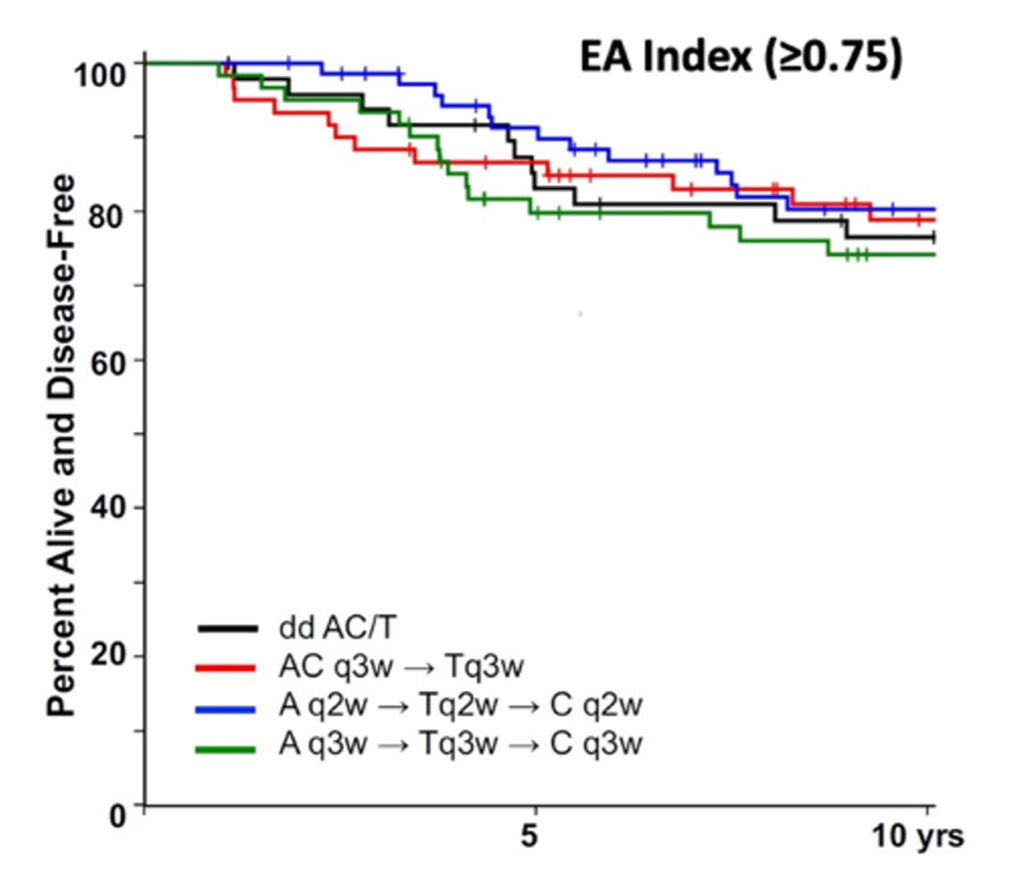
Patients with an EA Index <0.75, demonstrated a 30% improvement in OS when treated with ddAC-T compared to non-intense AC-T regimens. Patients with an EA Index >0.75 showed no additional benefit from a dose-intense regimen.
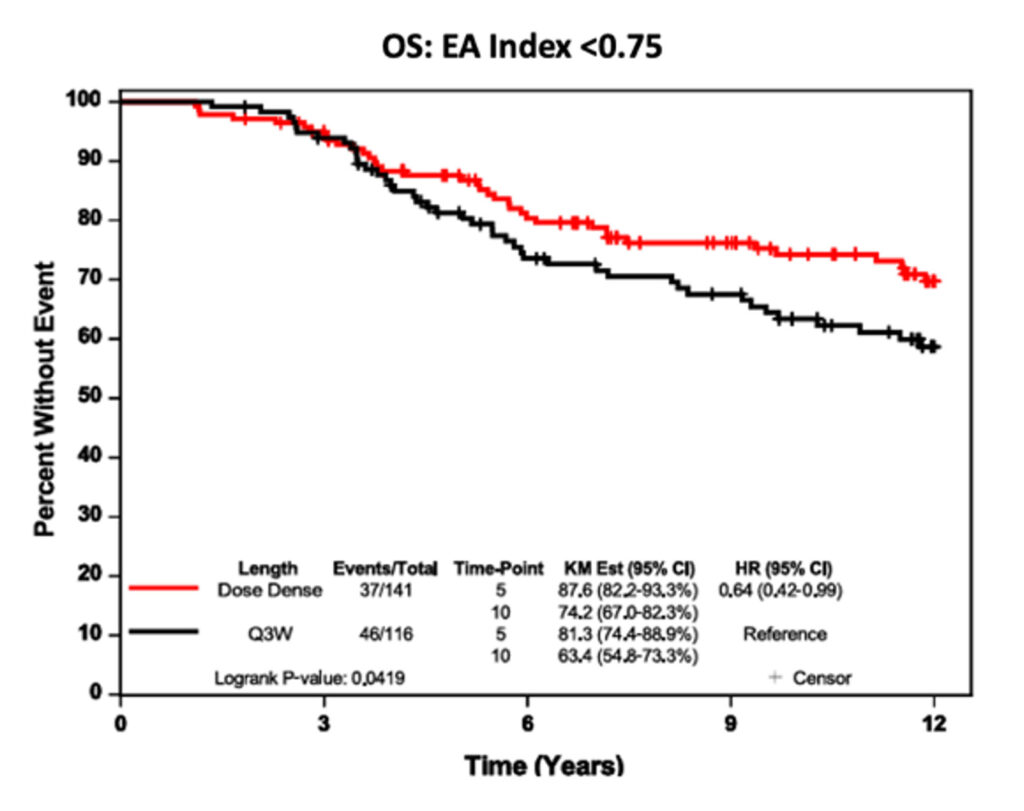
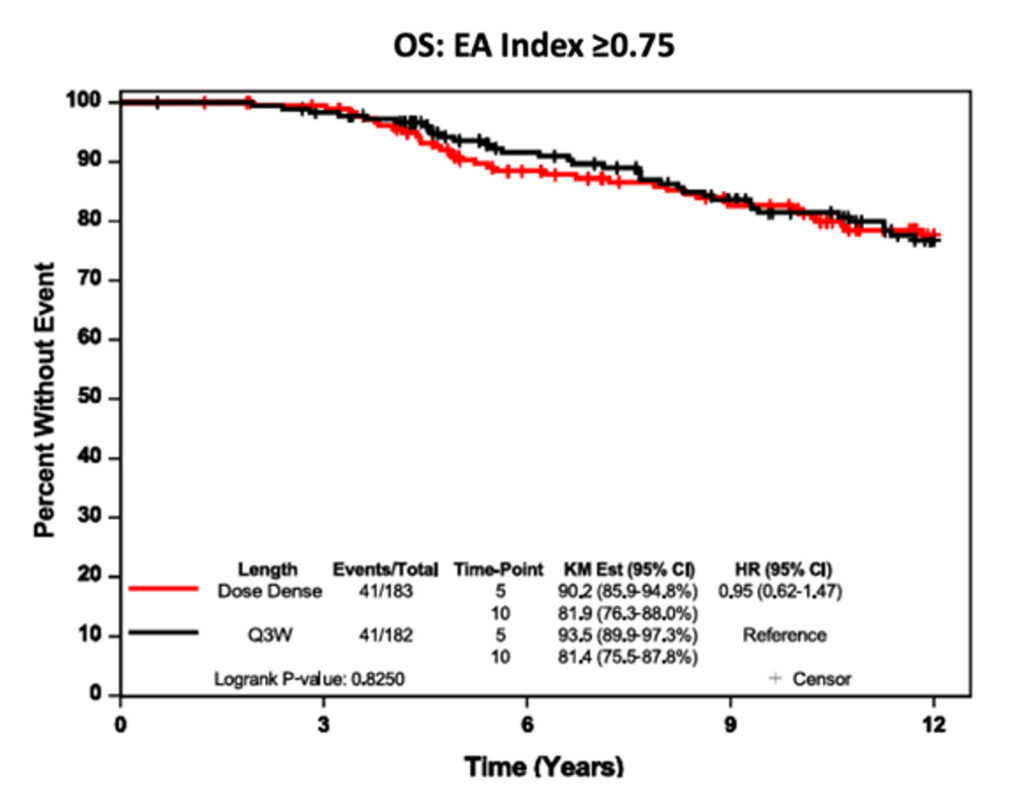
Analysis of patient samples from the GEICAM 9906 trial confirmed the ability of EA Index to predict benefit from addition of dose-intense paclitaxel to an anthracycline based chemo regimen in an independent population and using the same cutpoint identified in the CALGB 9741 trial.2 Patients with an EA Index <0.75, demonstrated a 55% improvement in DRFI when treated with ddAC-T compared to non-intense AC-T regimens.
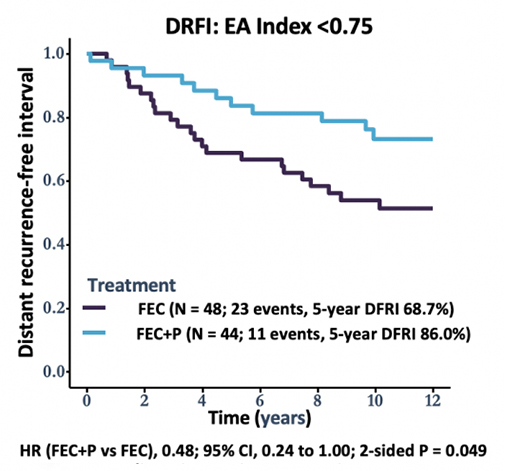
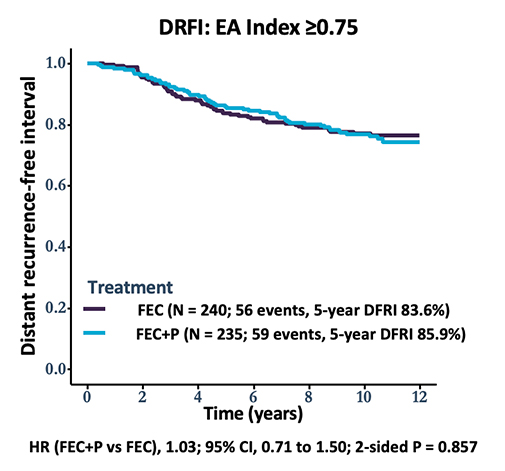
Report Overview
The EAI report provides information on which patients may benefit from a dose-intense paclitaxel-based chemotherapy vs. conventional chemotherapy regimen.
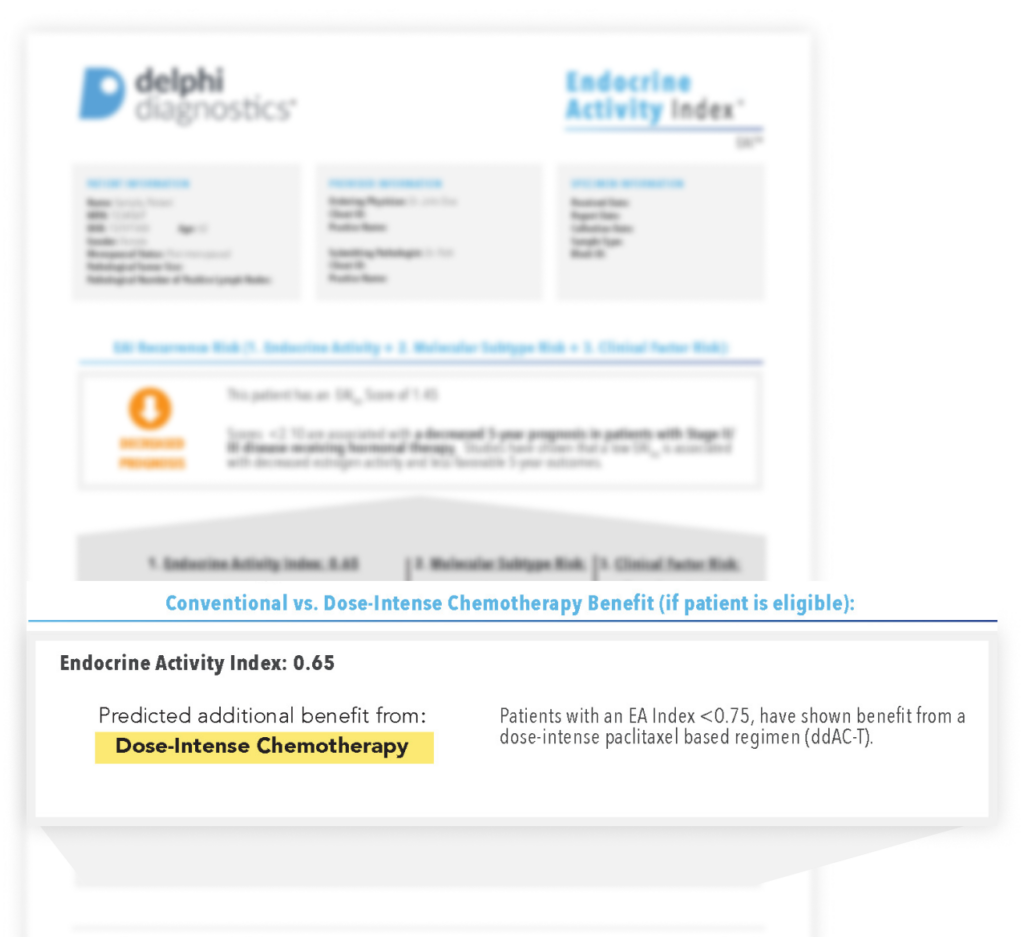
Contact Us
Want to learn more about the Endocrine Activity Index (EAI) or Delphi Diagnostics?
1.Metzger O.F., et al., Adjuvant Dose-Dense Chemotherapy in Hormone Receptor–Positive Breast Cancer. JCO 43, 1229-1239(2025). DOI:10.1200/JCO-24-01875
2.Martin M, et al. PS4-01: Predictor of benefit from dose-dense paclitaxel chemotherapy for patients with hormone receptor-positive HER2-negative breast cancer. A GEICAM/9906 sub-study. San Antonio Breast Cancer Symposium 2024.
OS = Overall Survival ; DRFI = Distant Recurrence-Free Interval
